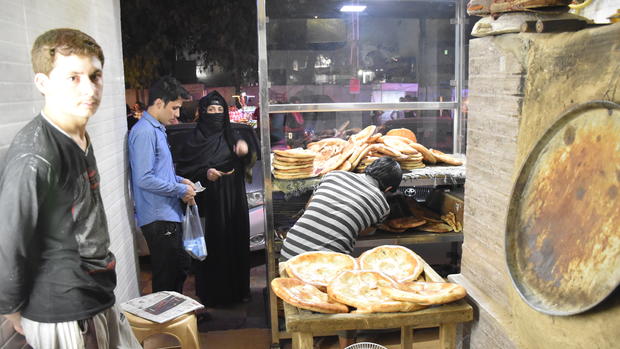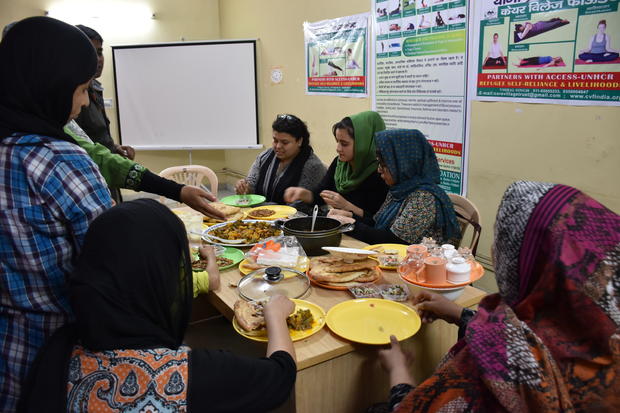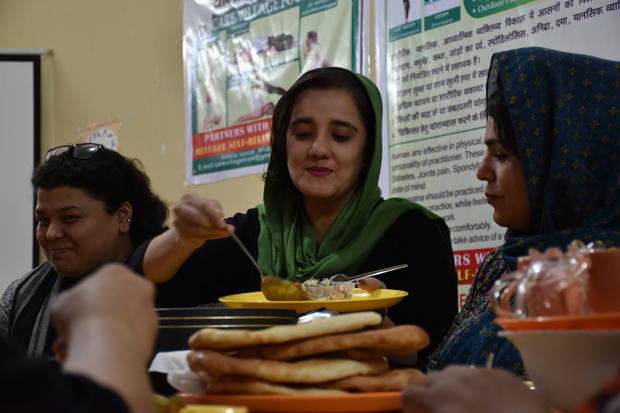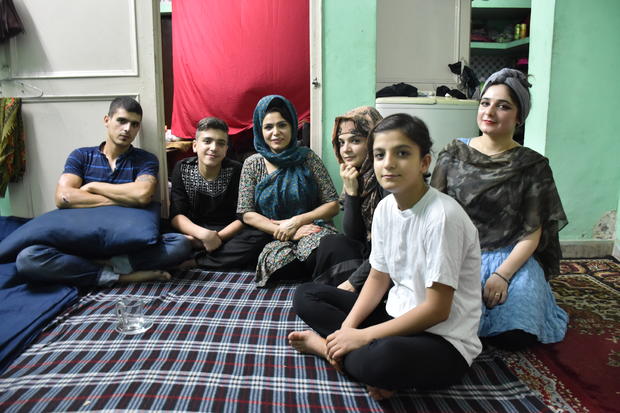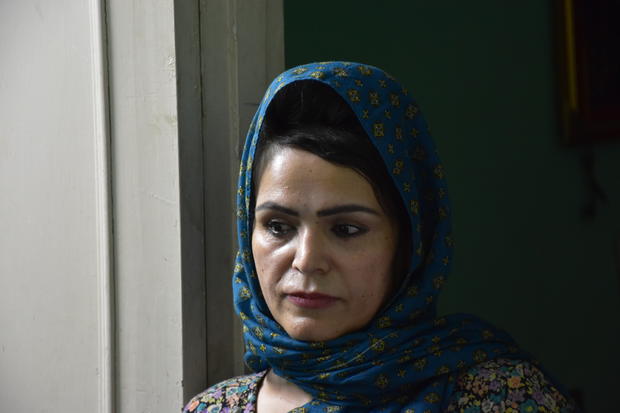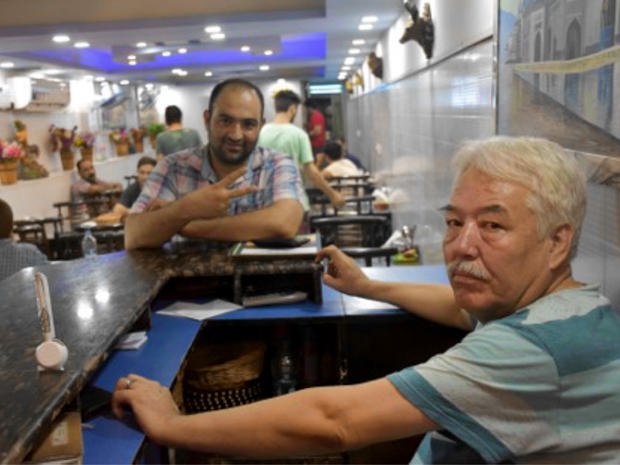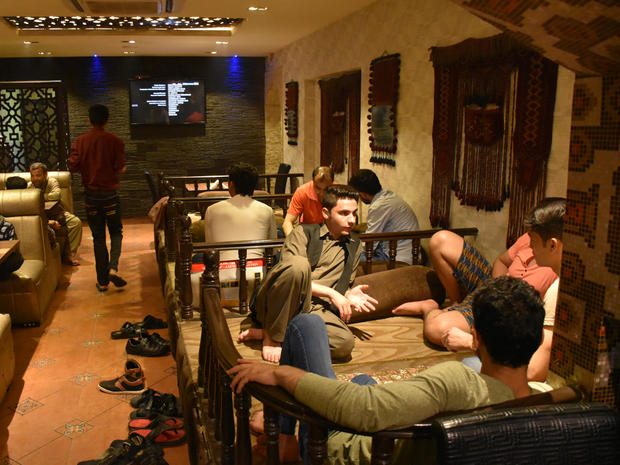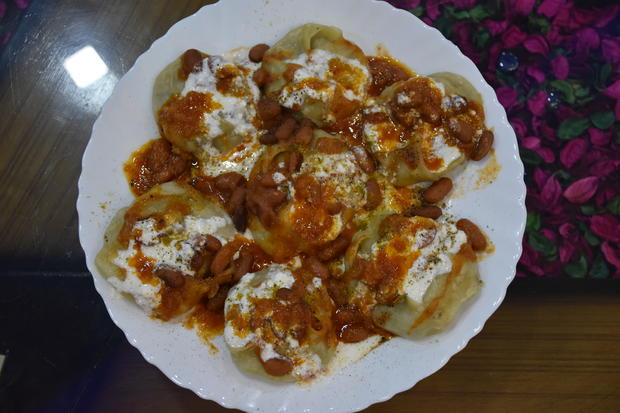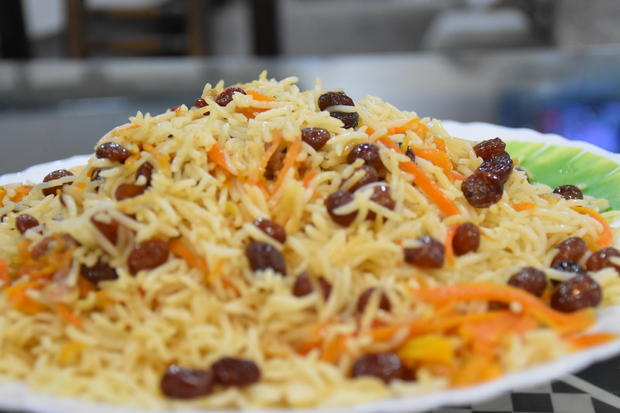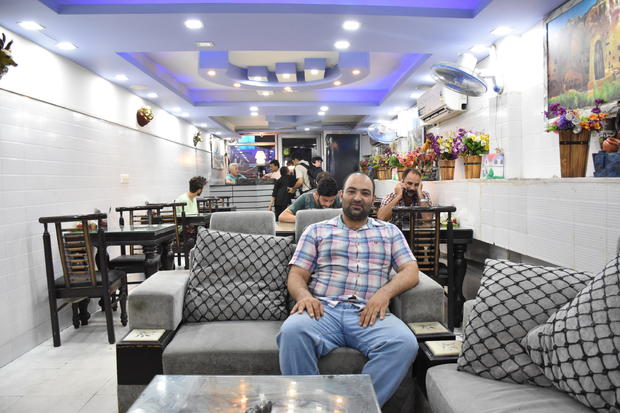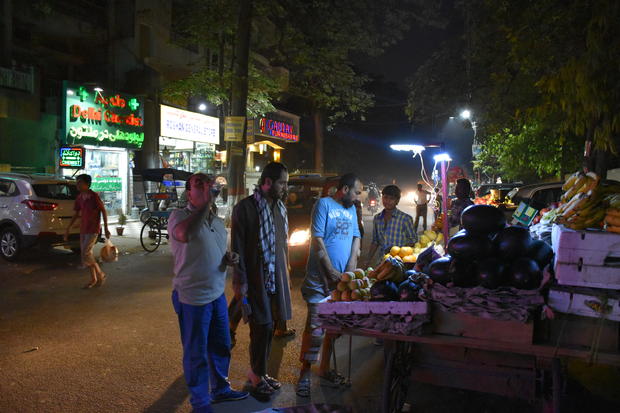A passion for food brings hope for the future
NEW DELHI -- Some of New Delhi's poorer neighborhoods have completely transformed in recent years. Many could now easily be mistaken for Kabul.
People in Afghan attire, speaking Pashto and Dari, casually swarm around shops that don signs in their own languages. Every night thousands of Afghan refugees and others who come to benefit from the country's cheap health care throng into these "Little Kabuls."
India is home to almost 14,000 refugees and asylum seekers from Afghanistan who have fled the war-torn country in search of safety and a better life.
Unlike refugees from other countries, Afghans have blended well with the locals, adding a new flavour to the local Indian culture. In spite of the struggles that come with abandoning their lives and homes, most seem to have assimilated well, finding small jobs or even opening businesses of their own.
Below, we introduce you to two groups of such Afghans and learn of their success stories -- and why, in spite of that success, some of them still long for home, or even more distant lands.
There are several restaurants in New Delhi serving Afghan food, mostly run by Afghans, but a catering service run by a group of female refugees sinceNovember, is also serving up inspiration.
The group of seven women -- all single mothers and six of them widows who lost their husbands to the war in Afghanistan -- named their start-up "Ilham," the Pashto word for inspiration.
In Afghanistan, they say they could never have imagined starting a business like this.
The United Nations High Commission for Refugees (UNHCR) and its development partner, ACCESS, has supported their initiative, training them in enterprise development and making them self-reliant through their culinary skills.
"Ilham has given us new hope. We are a lot more confident now. We are getting good feedback," said Zoha, who also acts as the interpreter for the group. "It seems we will get a break from anti-depressant pills."
Zoha has been in New Delhi for eight years. At first, when she attended a school here, she would cry so much in class that her Indian friends nicknamed her Nalka (the Hindi word for faucet).
"I always wanted to become a journalist. I still have that dream; to tell stories of my people in Afghanistan," Zoha said. "American media doesn't tell true stories."
Besides Zoha, only one other woman, Ziaul, agreed to be photographed. The rest said they feared their past, in their deeply conservative native country, could try and come looking for them.
"If our relatives in Afghanistan find out where we are, they will come and fetch us," said Kainaat (not her real name), who has two teenaged daughters.
For others, like 45-year-old Ziaul from Herat, a mother of six, it has been easier to leave the past, and her home country, completely behind.
"My husband was shot dead at midnight when I was pregnant. I have come here to build a future for my children," she said. "They are my world now."
Ziaul, who has been living in a very small apartment in the congested Khirki Extension area of New Delhi for six years, has four daughters and two sons. The eldest daughter is married to another Afghan refugee, and the rest live with her.
Ilham -- and India -- have come as a huge relieve for Ziaul, enabling her to support her family and let them dream of a future they couldn't have known in Afghanistan.
Her son Alijan and youngest daughter Razia attend a school nearby. The other two daughters, Farzana and Parisa, both want become makeup artists -- something they could have been killed for under Taliban rule when their mother fled Afghanistan.
Alijan, 14, told CBS News he was to take the lead role in a school play, set in Afghanistan, about an old man who "tortures his daughters and does not let them go to school."
"Our neighbour's house back in Herat was once bombed by the Taliban just because their daughter went to school," interrupts his sister Farzana.
The men of the Green Leaf
A passion for Afghan cuisine has come to the rescue of male refugees in New Delhi, too.
A group of refugees and asylum seekers run the Green Leaf Restaurant in Saket, another impoverished corner of the city that has become a home away from home for Afghans in India.
Mohammad Qasim, 30, and 47-year-old Yakub Ali are busy all day serving food in front of a hospital that has become popular with the throngs of "medical tourists" who visit the Indian capital.
Thousands of people come from Afghanistan every year to benefit from the high quality but relatively cheap health care. They tend to stay in rented accommodation near the hospital, and they tend to eat in the Afghan restaurants in the area. So Qasim and Ali saw a business opportunity.
The Afghan restaurants in New Delhi's Saket and Lajpat Nagar areas turn into popular hangouts in the evenings, drawing not only Afghans, but many locals as well.
Manthu, dumplings filled with meat and onion, steamed and served with split pea sauce and garlic yoghurt, have become favorites among the Indian patrons. Kabuli pilau rice, cooked with meat, vegetables, nuts and spices, also appeals to the Indian and Afhgan palates alike.
The Chabali kebab and Afghan green tea also have to be restocked regularly.
While India has afforded Qasim an opportunity to build a new life, he still longs for home.
"Who doesn't love his land? We wouldn't have come here if we had a choice," Qasim tells us as he relaxes at the end of a busy day in his restaurant.
For most of the Afghan refugees here, the ultimate goal is to resettle in the U.S. or Europe, where they believe there are even greater opportunities.
But Europe is already closing its doors on the flood of Syrian refugees, so the people of Little Kabul may have a long time to wait.
"We submit a very few refugees with particularly compelling protection needs for resettlement to a third country," Shuchita Mehta, a spokesperson for UNHCR India, tells CBS News. "Among 30 million refugees worldwide, less than 1-percent are resettled."
Photos and story by CBS News' Arshad R. Zargar in New Delhi.
